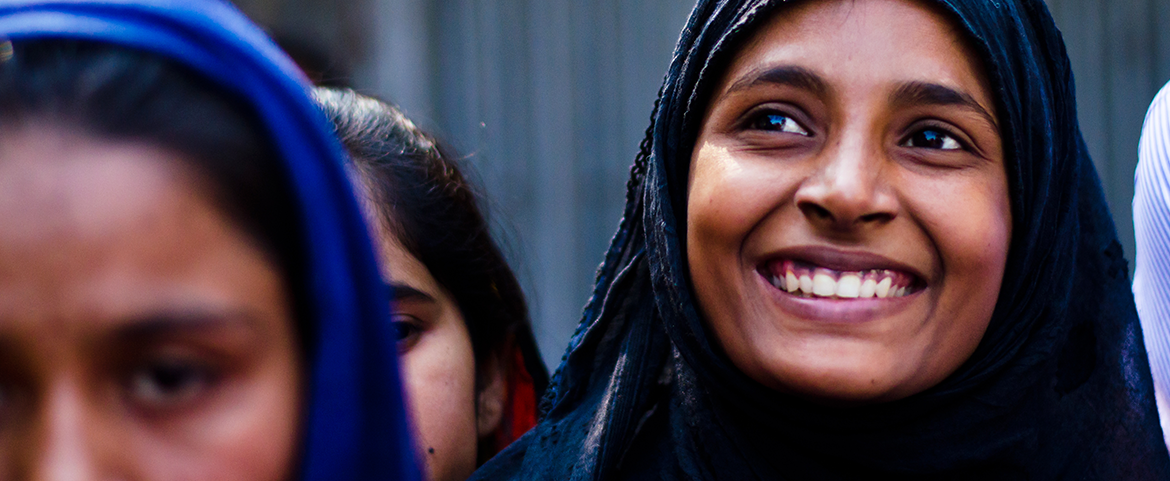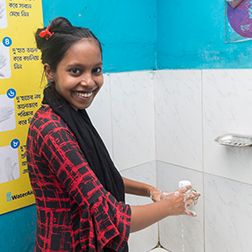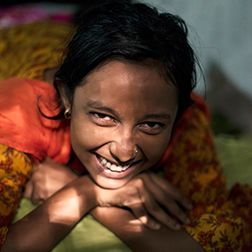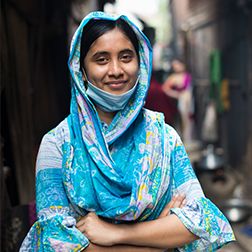Water
Read more about how we work to be a water responsible company in our production.

Basic needs come first and without access to clean water and sanitation, women will not be able to fulfil their potential. To support the work in improving access to clean water and sanitation all over the world, we collaborate with WaterAid.
Being a water responsible company is part of our sustainability promise for future generations and we have collaborated with WaterAid for several years to support their work in improving access to clean water and sanitation.
are ongoing or has been finalised so far: Gazipur and Mirpur in Dhaka, Bangladesh.
have got access to handwashing facilities that was installed due to the pandemic.
have got access so far to clean drinking water, proper toilets and information about hygiene.
have recevied training so far on issues and entrepreneurship connected to water, sanitation and hygiene.
have been trained as change agents so far, to raise awareness and improve hygiene behaviours in their communities.
led by women have been developed and financially supported.
Meet some of the young women who have become change agents. As part of the project, they have received training on water, sanitation and hygiene, which they use to raise awareness in their communities.

What makes me happy is to see people living a healthy life. Besides my studies, I promote clean water, decent toilets and good hygiene in my community.
Abu Hena Rumi
one of the youngest change agents in the project

When I spoke to my community, at first, I did not receive much attention. But as time goes by, with continuous attempts and efforts to improve WASH facilities in my community, the people started listening to me.
Jannatul Ferdous Masuma
has established herself as a successful entrepreneur with support from the project

We have managed to change hygiene behaviours. The challenges and responsibilities have increased towards our community, so we are accelerating our efforts in making the WASH practices sustain during COVID-19 and beyond.
Mitu Akther
who also used her knowledge to raise awareness during the pandemic
Did you know that diseases caused by dirty water kills more people each year than all forms of violence, including war? Over 771 million people lack access to clean water and almost 2 billion people lack access to decent toilets. It is a silent disaster and it affects women and girls the most by limiting their opportunities and ability to fulfil their potential. In many communities, something as natural as menstruation becomes a limit for women’s opportunities to get an education. And when lacking access to clean water in their neighbourhoods, women and girls are often the ones who are responsible for finding and getting water. Every day, millions of women walk for hours to get water, which means they have no time left to go to work, go to school or engage in their community.
Want to know more about our projects with WaterAid? We share the progress and more details annually in our sustainability report.